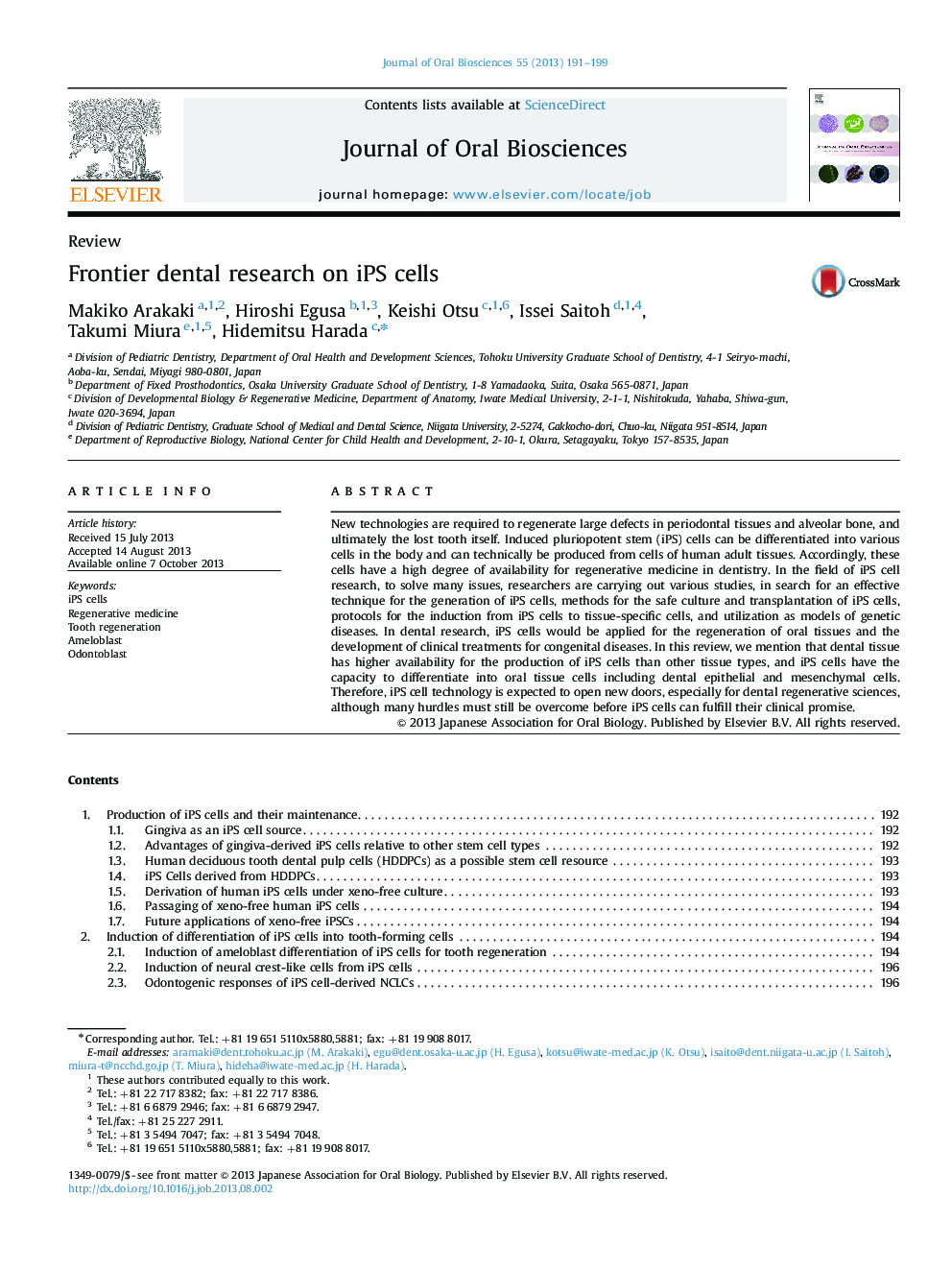| Article ID | Journal | Published Year | Pages | File Type |
|---|---|---|---|---|
| 2776843 | Journal of Oral Biosciences | 2013 | 9 Pages |
New technologies are required to regenerate large defects in periodontal tissues and alveolar bone, and ultimately the lost tooth itself. Induced pluriopotent stem (iPS) cells can be differentiated into various cells in the body and can technically be produced from cells of human adult tissues. Accordingly, these cells have a high degree of availability for regenerative medicine in dentistry. In the field of iPS cell research, to solve many issues, researchers are carrying out various studies, in search for an effective technique for the generation of iPS cells, methods for the safe culture and transplantation of iPS cells, protocols for the induction from iPS cells to tissue-specific cells, and utilization as models of genetic diseases. In dental research, iPS cells would be applied for the regeneration of oral tissues and the development of clinical treatments for congenital diseases. In this review, we mention that dental tissue has higher availability for the production of iPS cells than other tissue types, and iPS cells have the capacity to differentiate into oral tissue cells including dental epithelial and mesenchymal cells. Therefore, iPS cell technology is expected to open new doors, especially for dental regenerative sciences, although many hurdles must still be overcome before iPS cells can fulfill their clinical promise.
